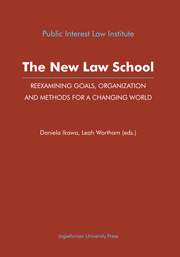Book contents
- Frontmatter
- Contents
- Preface
- Acknowledgments
- Introduction
- Part One Goals of Legal Education
- Part Two Law School Governance
- Part Three Optimal Academic Curricula and Teaching Methods
- Part Four The Academic Career in Law
- Chapter 7 The Challenges of the Mass University and the Civil Law Country Model of Legal Education: How Open Is the Polish University Model to Innovative Teaching and Nurturing of Clinical Programs?
- Chapter 8 Croatian Legal Education Reform at the Crossroads: Preparing the Modern Lawyer
- Chapter 9 The Need for a New Law Professor in Moldova
- Chapter 10 Some Aspects of Academic Legal Careers in Georgia
- Appendix
Chapter 8 - Croatian Legal Education Reform at the Crossroads: Preparing the Modern Lawyer
from Part Four - The Academic Career in Law
Published online by Cambridge University Press: 05 September 2014
- Frontmatter
- Contents
- Preface
- Acknowledgments
- Introduction
- Part One Goals of Legal Education
- Part Two Law School Governance
- Part Three Optimal Academic Curricula and Teaching Methods
- Part Four The Academic Career in Law
- Chapter 7 The Challenges of the Mass University and the Civil Law Country Model of Legal Education: How Open Is the Polish University Model to Innovative Teaching and Nurturing of Clinical Programs?
- Chapter 8 Croatian Legal Education Reform at the Crossroads: Preparing the Modern Lawyer
- Chapter 9 The Need for a New Law Professor in Moldova
- Chapter 10 Some Aspects of Academic Legal Careers in Georgia
- Appendix
Summary
Introduction
Like many countries in Central and Eastern Europe, Croatia has embarked on substantial reform of its legal education system. These reform efforts began with Croatia signing the Bologna Declaration in May 2001, although the actual implementation of Bologna in the field of legal studies began a few years later, in the fall of 2005.
In order to prepare new generations of legal experts for new and more competitive business environments in the global market, legal education reformers in Croatia are seeking to use Bologna to:
establish consistent standards in academic titles, i.e., comparable degrees and diplomas throughout Europe;
implement the European Credit Transfer System;
increase the mobility of students across Europe;
establish a European Qualification Framework to achieve a common level of quality in higher education in Europe;
implement a two-cycle system of legal education throughout Europe, where the first level is an undergraduate degree, usually lasting three years, and the second level consists of a graduate degree, i.e., an LLM or PhD degree.
While most experts agree that the quality of legal education in Croatia needs vast improvement, some experts are questioning whether the rush to reform has discarded some of the best elements of the old system. It is too early in the reform process to have an objective evaluation of the results, but in the next three years, when the first generation of “Bologna students” graduate and compete for jobs in the local and global labor markets, objective, fact-based results of the current reform process will become evident.
- Type
- Chapter
- Information
- The New Law SchoolReexamining Goals, Organization and Methods for a Changing World, pp. 87 - 92Publisher: Jagiellonian University PressPrint publication year: 2010

